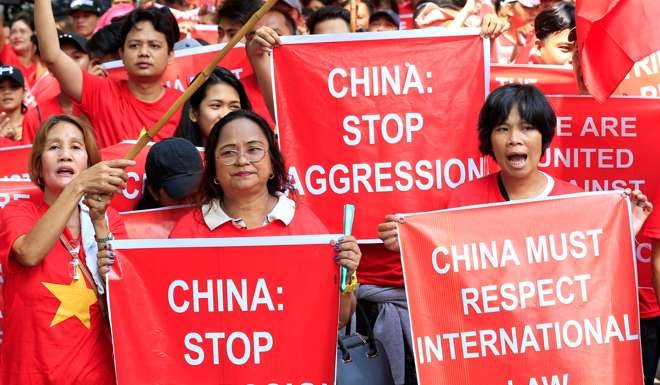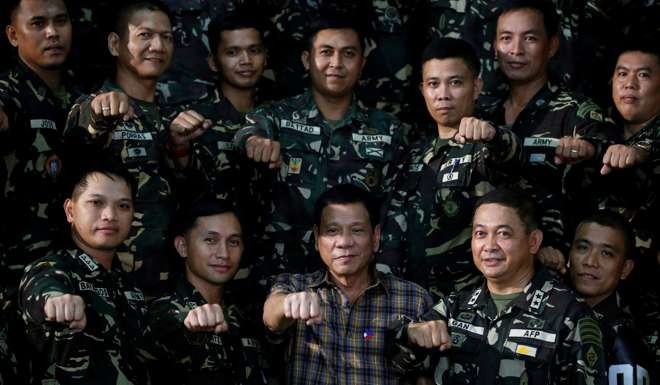
‘It will be bloody’: Duterte’s warning to China if it attacks the Philippines in festering sea dispute
The firebrand president implies he would also lay down his life to protect his country - a day after saying it was better to engage China in diplomatic dialogue rather than anger
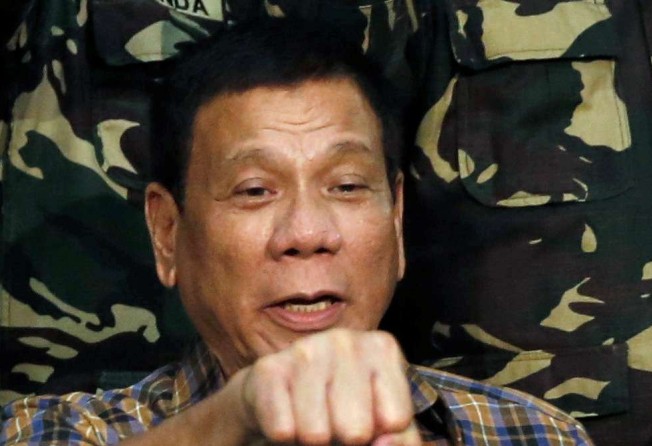
Philippine President Rodrigo Duterte warned Wednesday of a “reckoning” with China if there was no resolution to a tense dispute over rival claims to the South China Sea.
An international tribunal ruled last month that China’s claims to most of the strategically vital waters had no legal basis, in what was seen as a sweeping victory for the Philippines, which filed the case.
Duterte repeatedly had said he did not want to anger China with an aggressive response, and sent an envoy to ease tensions, but on Wednesday signalled he was prepared to adopt a more confrontational approach.
“We will not raise hell now because of the judgement but there will come a time that we will have to do some reckoning about this,” The brash president said in a speech to soldiers at a military camp.

I guarantee to them, if you are the ones who enter here, it will be bloody and we will not give it to them easily. It will be the bones of our soldiers and even my own
China, which has in recent years undertaken giant land reclamation works in disputed parts of the sea, has vowed to ignore the ruling.
It has called for direct talks with the Philippines, but insisted it will not compromise on its claims.
Duterte said the Philippines had not “insisted” on the judgement, but signalled that stance would change.
“They (China) better come up with what they really want. Because whether we like it or not, that arbitral judgement would be insisted (on) not only by the Philippines but by the whole countries here in Southeast Asia,” he said.
Vietnam, Malaysia, Brunei and Taiwan also have claims to the sea, which is believed to sit atop vast gas reserves and through which more than $5 trillion in annual shipping trade passes.
Duterte also warned China, which has a vastly superior armed forces, against attacking the Philippines.
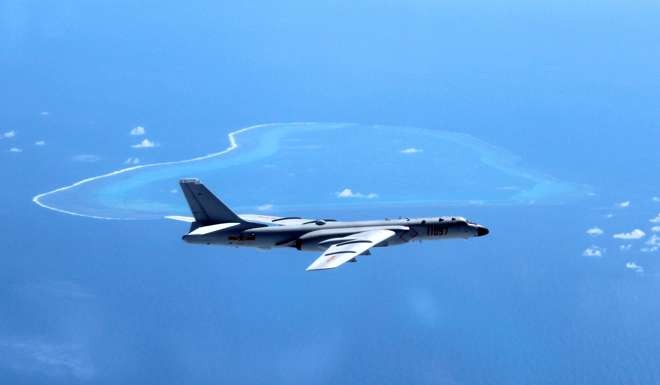
“I guarantee to them, if you are the ones who enter here, it will be bloody and we will not give it to them easily. It will be the bones of our soldiers and even my own,” said Duterte.
Duterte’s predecessor, Benigno Aquino, initiated the arbitration case against China. Duterte, however, has not pressed for Chinese compliance and does not plan to raise the decision at an annual summit of Southeast Asian leaders with their Chinese counterpart in Laos next month.
“It’s better to continually engage China in a diplomatic dialogue rather than anger whoever the officials there and they cut completely,” Duterte said Tuesday night, adding that possible talks on maritime and security issues would be undermined if ties are strained.
In his first cabinet meeting after being sworn into office on June 30, Duterte said he would not “taunt or flaunt” a successful verdict, which was handed down about a fortnight later.
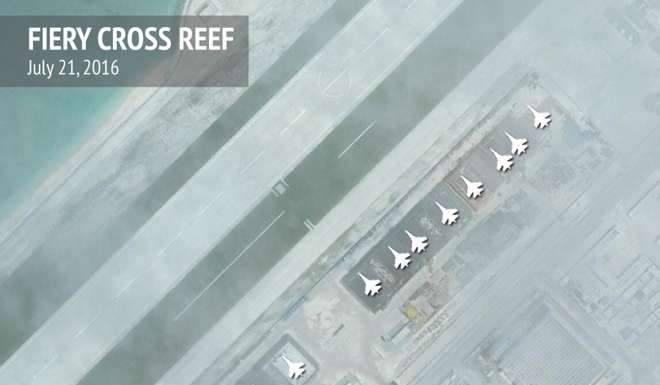
Duterte sent ex-president Fidel Ramos to Hong Kong for an ice-breaking meeting this month with Fu Ying, chair of the foreign affairs committee of the National People’s Congress, China’s communist-controlled legislature.
Duterte said on Tuesday he hoped to have formal talks with China this year.
China isn’t the only target of Durtert’s tirades. Earlier this month, he sparked a fresh diplomatic row, calling the United States ambassador “gay” in comments that prompted Washington to summon Manila’s envoy to complain.
Durterte, known for his colourful language, has also threatened to withdraw the Philippines from the United Nations, later cushioned by his foreign secretary, disparaged the pope, human rights advocates, and other countries who controvert his worldview.
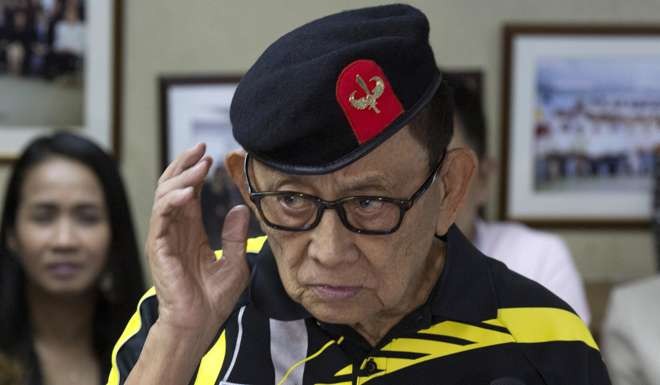
Philippine Foreign Minister Perfecto Yasay said on Wednesday there had been no shift in the balance of diplomatic relations with either the United States and China amid a dispute over the South China Sea.
“We want to make close friendship with China. It does not mean that we’ll weaken our friendship with the United States,” Yasay said during a break of a meeting of the senate foreign relations committee.
“We’re just saying that in spite of our disputes, as regards China on the South China Sea, there are other aspects of our relationship that can proceed without having to touch upon the South China Sea issue.”
